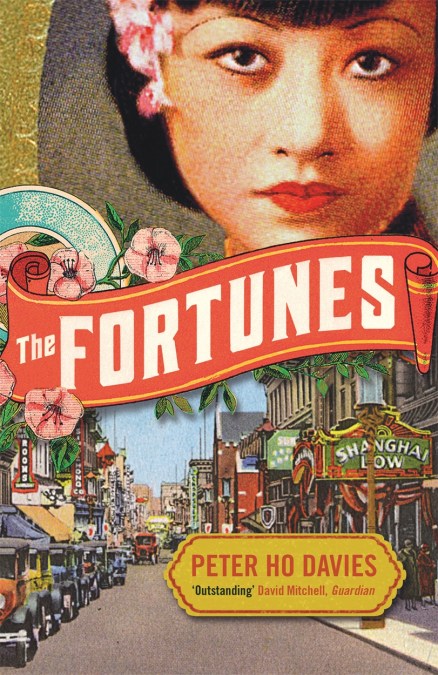Ah Ling: son of a prostitute and a white ‘ghost’, dispatched from Hong Kong as a boy to make his way alone in 1860s California.
Anna Mae Wong: the first Chinese film star in Hollywood, forbidden to kiss a white man on screen.
Vincent Chin: killed by a pair of Detroit auto workers in 1982 simply for looking Japanese.
John Ling Smith: a half-Chinese writer visiting China for the first time, to adopt a baby girl.
Inspired by three figures who lived at pivotal moments in Chinese-American history, and drawing on his own mixed-race experience, Peter Ho Davies plunges us into what it is like to feel, and be treated, like a foreigner in the country you call home.
Ranging from the mouth of the Pearl River to the land of golden opportunity, this remarkable novel spans 150 years to tell a tale of familial bonds denied and fragmented, of tenacity and pride, of prejudice and the universal need to belong.
Anna Mae Wong: the first Chinese film star in Hollywood, forbidden to kiss a white man on screen.
Vincent Chin: killed by a pair of Detroit auto workers in 1982 simply for looking Japanese.
John Ling Smith: a half-Chinese writer visiting China for the first time, to adopt a baby girl.
Inspired by three figures who lived at pivotal moments in Chinese-American history, and drawing on his own mixed-race experience, Peter Ho Davies plunges us into what it is like to feel, and be treated, like a foreigner in the country you call home.
Ranging from the mouth of the Pearl River to the land of golden opportunity, this remarkable novel spans 150 years to tell a tale of familial bonds denied and fragmented, of tenacity and pride, of prejudice and the universal need to belong.
Newsletter Signup
By clicking ‘Sign Up,’ I acknowledge that I have read and agree to Hachette Book Group’s Privacy Policy and Terms of Use
Reviews
Only a writer as gifted as Peter Ho Davies could capture the full weight of a century's history with such an extraordinary lightness of touch . . . Buoyant yet profound, unsentimental yet affecting, and above all beautifully written, The Fortunes reimagines in thrilling ways what the multi-generational immigrant novel can be.
The book's scope is impressive, but what's even more staggering is the utter intimacy and honesty of each character's introspection. More extraordinary still is the depth and the texture created by the juxtaposition of different eras . . . a brilliant, absorbing masterpiece.
A poignant, cascading four-part novel about being Asian and western, about immigrants and natives, about belonging in a country and one's skin . . . outstanding.
The non-European American immigrant experience is rich fictional territory that has been mined by some fine writers (Chimamanda Ngozi Adichie, Jhumpa Lahiri, Julie Otsuka) and Ho Davies is absolutely their equal. It is hard to imagine a novelist more alive to the layered ironies of national identity
Davies pursues his overarching themes of identity and belonging with empathy and wit, repeatedly minting finely judged images that, in a novel not short on flair, arrest and dazzle.
An absorbing, thrillingly serious read
Panoramic in scope yet intimate in detail, THE FORTUNES might be the most honest, unflinching, cathartically biting novel I've read about Chinese American experience.
Davies's first novel, The Welsh Girl was longlisted for the Man Booker Prize, and he was adjudged one of Granta's Best Young British Novelists. The Fortunes is an equally beguiling book, and should do much to strengthen Davies's reputation.
Each novella-length section stands on its own, lending weight and substance to a superbly crafted whole.
Davies captures historical detail in exacting, immersive prose, with the confidence of an eyewitness . . . By uniting an ambitious range of characters, eras and styles, Davies highlights their commonalities, and the subtle, insidious persistence of history . . . It is unreasonable to expect one book to capture the breadth of a radicalized experience - as a historical construction and an everyday fact, as a source of both community and alienation, as a minor annoyance and a moral threat, as a matter of perception and of identification, its diversity and singularity - but The Fortunes has come astonishingly close. It should take its place as a seminal, defining text on the Chinese-American experience.

